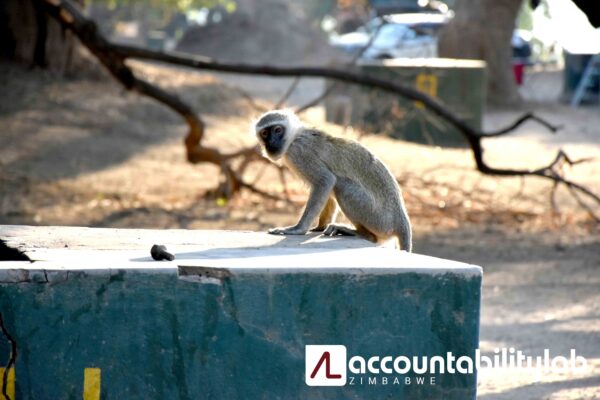NEWS
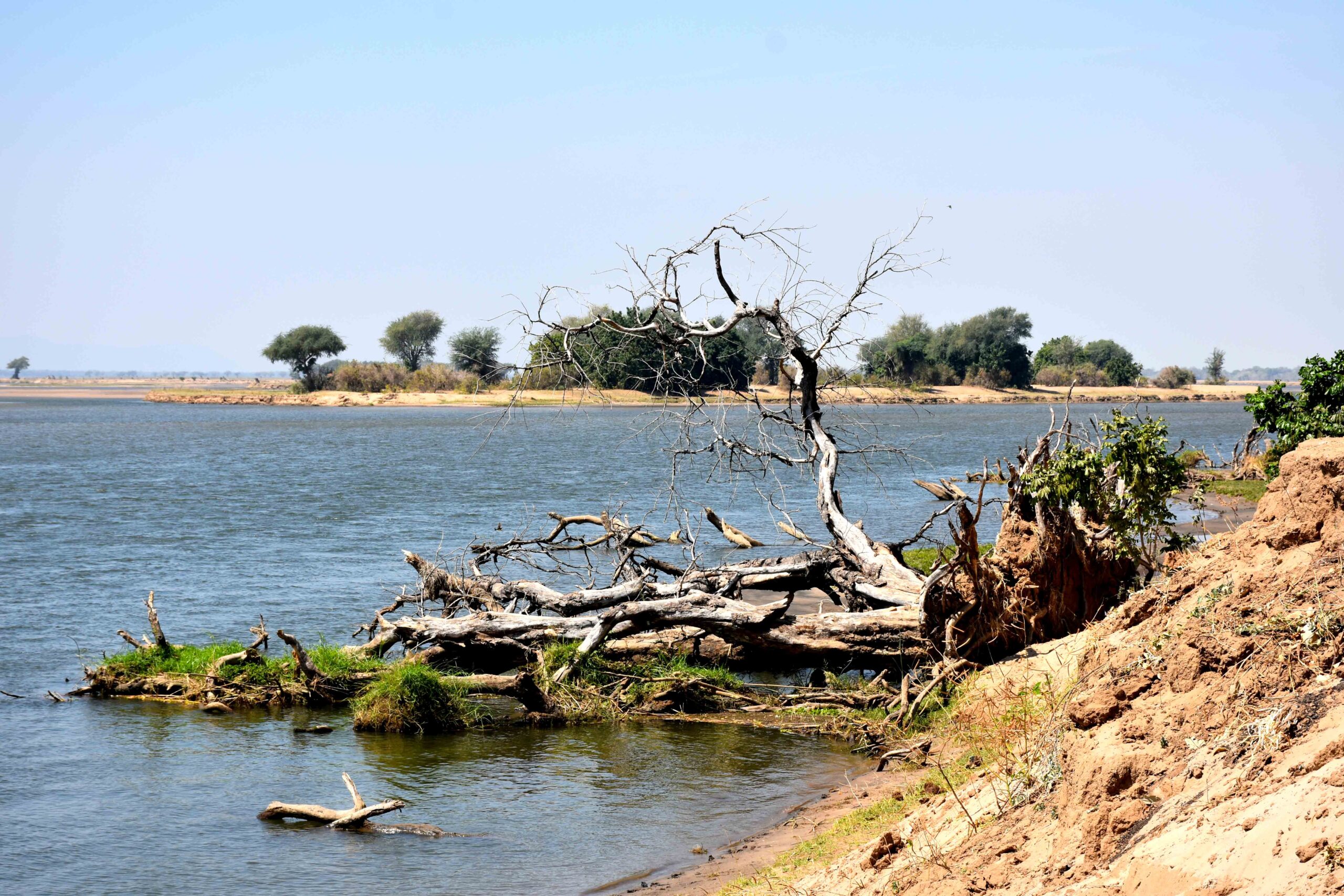
IN BRIEF
Initially, I was skeptical about the value of traveling 500 […]
SHARE
Initially, I was skeptical about the value of traveling 500 kilometers to discuss climate change when we first considered hosting a climate change boot camp in Mana Pools. However, my perspective changed through our group’s interactions with the flora and fauna of the national park, which helped ground our discussions and lectures. In my 14 years working in the democracy, rights, and governance sector, I was used to having important conversations in hotels, so this was a new experience for me. Before the trip, I believed that the millions of people facing food insecurity across the Southern Africa region were evidence enough of the devastating effects of the current El Niño-induced drought, a consequence of climate change.
Impacts of the climate crisis go beyond the devastating effects of drought witnessed across the Southern Africa region
I had never considered that animals and vegetation are also innocent victims of the devastation caused by climate change, believing that only humans suffered.
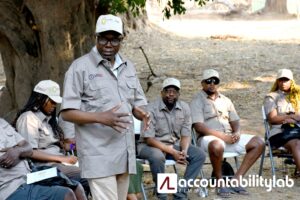
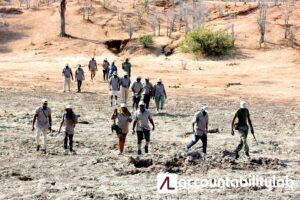
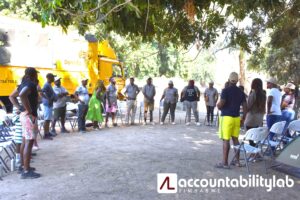
During the learning sessions, experts taught us about topics including the science of climate change, using examples from the environment. We discussed global climate financing dynamics, governance and accountability issues, and the negative outcomes and further marginalization of youth and women, our program’s most important targets.
While I had only considered the consequences of climate change on humans, it became undeniable that human activities significantly contribute to it. Domestic and industrial activities damage the ozone layer, which regulates global temperatures.
From the perspective of our core work to support a vibrant and healthy accountability ecosystem, we acknowledged that women and young people are the most affected by climate change. As such, climate change mitigation and adaptation strategies should primarily focus on addressing their concerns.
Climate financing is essential for both mitigation—requiring large-scale investments in alternative energy solutions—and adaptation, as significant financial resources are needed to cope with the adverse effects of a changing climate. The need for large-scale climate financing raises critical accountability and governance questions about how governments will account for loss and damage funds. Furthermore, governments must implement robust mechanisms to manage funds raised from trading carbon credits, ensuring communities benefit equitably.
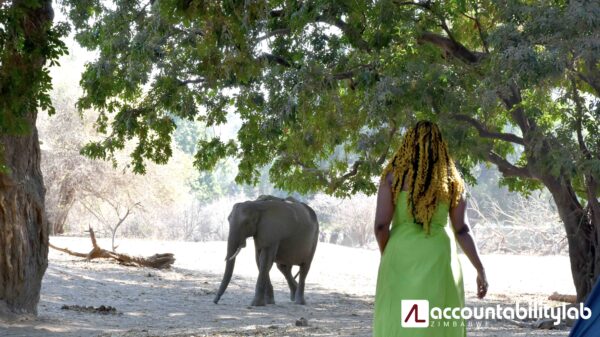
An elephant from a family nearby wandering close to our camp as Ska Sebata tries to shoo it away
These deep insights from our learning sessions were reinforced by our exploration of the impacts of climate change on Mana Pools, where the effects are clearly visible. We camped in the national park, observing animals like elephants in their natural habitat. One night, an elephant wandered into our camp, shocking several of us as it searched for food and destroyed a metal container.
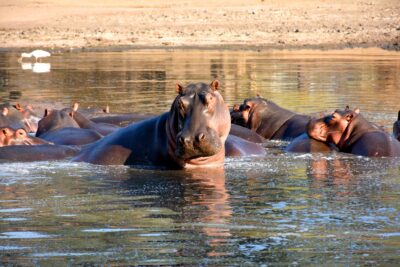
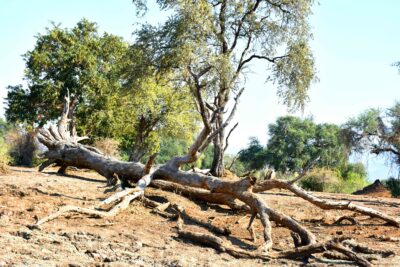
We took the opportunity to hike around the park, observing dry and drying pools of water. In one, we found a crowd of hippopotami jostling for the little water available. The guides explained that such crowding was unhealthy for the animals, as disease could spread easily. We also noticed that trees in the park were shedding their leaves, which the guide explained was due to the trees conserving water. Dry twigs and logs were scattered around the park, signaling the loss of vegetation. More evidence of the drought appeared in the form of numerous sandbars on the Zambezi River, a sign of the dropping water level. In the long run, the animals will struggle to find water and may die.
In summary, the boot camp in Mana Pools changed my perspective on climate change and opened my eyes to what we can collectively do to mitigate and adapt to it. I am now convinced that we all have a responsibility to address climate change. I am committed to educating others about the importance of environmental conservation and reforestation in my personal life and developing effective frameworks to monitor and evaluate climate change mitigation and adaptation strategies as a monitoring and evaluation practitioner. Climate justice is one of the Lab’s key strategic pillars, and the boot camp helped me identify possible interventions as our team transitions to a new phase.
Check out more photos from the bootcamp here and here.
—
Alois Nyamazana is the Monitoring Evaluation and Learning Manager at Accountability Lab Zimbabwe

